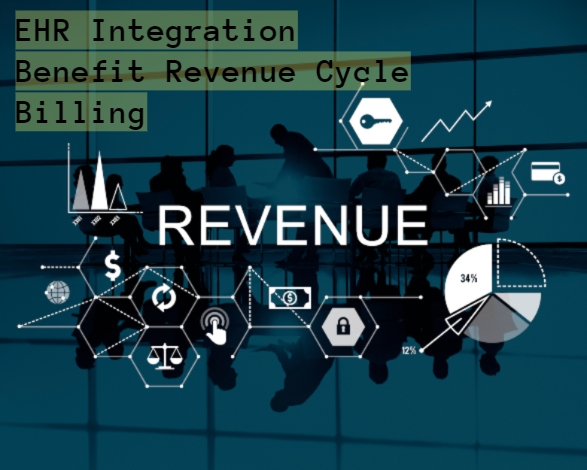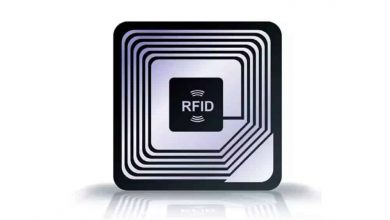How can EHR Integration Benefit Revenue Cycle Billing?
EHR Integration Benefit Revenue Cycle Billing

According to data collected in last year, approximately 89% of healthcare organizations and individual provider offices used best Electronic Health Records software. However, many providers continue to resist investing in and managing EHR systems in their practices. EHR systems improve efficiency and serve as an ideal partner for healthcare organizations in storing vital data. However, the high acquisition cost and step maintenance costs have discouraged a few providers from using this system.
Several physicians have put in a lot of time and effort to set up EHR systems. Many others, on the other hand, have not invested much in EHR and have instead upgraded the existing Revenue Cycle Management systems. But how are these two related?
Having a proper EHR channel with up-to-date information and simple features could be the first step toward eliminating redundancies in your RCM process. With the right EHR integration and implementation, you can significantly improve your revenue cycle billing. Read on to find out how, with the help of following FAQs.
1. What is the meaning of EHR integration with revenue cycle billing?
EHR systems and revenue cycle billing systems are two critical functional pillars in a healthcare organisation. EHR integration with RCM means that the two systems will no longer operate as separate islands, but will instead share data and information. The revenue cycle management process relies on several critical data points contained in EHR. These data points can then be transferred between systems without the need for manual copying or sending of files.
2. Is it possible to integrate EHR into legacy revenue cycle billing systems?
Yes. EHR systems can easily be integrated with legacy revenue cycle billing systems. However, advanced technical knowledge is required to complete the process of developing HL7 interfaces. These interfaces will be in charge of ensuring the smooth flow of data within the systems, such as patient demographic information and charges. You can also choose EHR systems that include pre-installed clinic management software, allowing you to begin using it right away.

3. How does EHR integration aid in the claiming process?
The billing team may spend a significant amount of time cross-checking patient data and filling out claim forms. Furthermore, several errors occur during the data transfer, which may negatively impact your cash flow. To fill out the claim form, integrated Electronic Health Record systems pull the necessary data from patient forms and medical records. The system can automatically fill out the electronic claim form, saving you a significant amount of time. On the other hand, the software solution can be used to run checks throughout the forms to see if there is any discrepancy between the Electronic Health Record and the claim submitted. All of these benefits improve the revenue cycle billing workflow, reducing the possibility of error.
4. Can EHR integration help you increase your clean claim rate?
Getting a clean claim on the first try is something that many healthcare organizations strive for, but few achieve. Healthcare organizations are frequently burdened with revenue cycle billing issues, with a few teams handling all functions simultaneously, resulting in an increase in errors. Avoidable errors, such as incorrect insurance information or incorrect patient information, could have a negative impact on the organization’s revenue integrity. With an EHR integration, the platform will display any missing fields as well as any suspected errors prior to final submission. Eliminating the practice of manually typing details reduces the likelihood of errors.
5. How does EHR integration with revenue cycle billing speed up your process?
Manual intervention in revenue cycle billing workloads frequently results in incorrect coding and inaccurate data. Frequently, the problem is that the error in the revenue cycle billing workflow is not noticed until the very end, making it nearly impossible to trace back. The billing team is then unable to determine which stage of the process the error occurred. A large portion of the manual workflow is reversed when your EHR is integrated with your revenue cycle billing process. The software platforms used for integration frequently include a feature that alerts you if there is a mismatch between the data in the EHR and the data in the EHR. It eliminates the need to search for and correct errors, making the process extremely time-efficient.
6. What are the difficulties in integrating EHR?
When it comes to Electronic Health Record and revenue cycle billing systems, providers frequently face several interoperability challenges. There are some reservations about working with multiple vendors to achieve a single goal. To begin with, the lack of APIs or standard information-exchange protocols is a major source of concern. Aside from that, find a suitable vendor who is willing to share information and assist you with scalability. Many providers are unsure about the security measures in place to safeguard their patients’ information.
7. What security precautions should you take?
HIPAA is the gold standard for securing sensitive healthcare data in digital workflows, including EHR integration. As a result, your EHR integration vendor must be HIPAA compliant in order to protect sensitive PHI from potential risks. Encrypting data in EHR integration, for example, is a primary requirement; otherwise, the healthcare organisation faces a high level of risk. You should also invest heavily in your IT infrastructure to ensure that you have a comprehensive system in place to manage interoperability. Please keep in mind, however, that HIPAA is only one component of security standardization. Inquire with your vendor about additional layers of security that they can provide.
Conclusion
When the various scenarios of EHR integration are compared, it is clear that the benefits of having EHR integration outweigh the risks. You should not be concerned, especially if you have a HIPAA-compliant vendor to assist you with your integration journey. Contact a professional RCM company to learn how they can assist you in integrating your revenue cycle billing with your EHR system.Read updated blog for more information.





